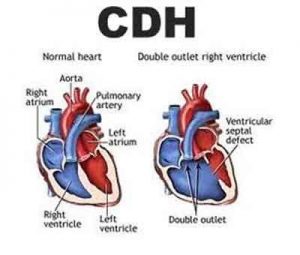- Home
- Editorial
- News
- Practice Guidelines
- Anesthesiology Guidelines
- Cancer Guidelines
- Cardiac Sciences Guidelines
- Critical Care Guidelines
- Dentistry Guidelines
- Dermatology Guidelines
- Diabetes and Endo Guidelines
- Diagnostics Guidelines
- ENT Guidelines
- Featured Practice Guidelines
- Gastroenterology Guidelines
- Geriatrics Guidelines
- Medicine Guidelines
- Nephrology Guidelines
- Neurosciences Guidelines
- Obs and Gynae Guidelines
- Ophthalmology Guidelines
- Orthopaedics Guidelines
- Paediatrics Guidelines
- Psychiatry Guidelines
- Pulmonology Guidelines
- Radiology Guidelines
- Surgery Guidelines
- Urology Guidelines
Folic acid fortified food linked to decline in CDH : AHA Study

Study Highlights Food fortified with folic acid helped lower overall rates of congenital heart defects in Canada. The effect was evident in some types of congenital heart defects but not all. Embargoed until 3 p.m. CT / 4 p.m. ET Monday, A...
Study Highlights
- Food fortified with folic acid helped lower overall rates of congenital heart defects in Canada.
- The effect was evident in some types of congenital heart defects but not all.
Dallas : Food fortified with folic acid, a B vitamin required in human diets for numerous biological functions, was associated with reduced rates of congenital heart defects, according to new research in the American Heart Association’s journal Circulation.
“Our study examined the effect of folic acid food fortification on each specific subtype of congenital heart disease based on the Canadian experience before and after food fortification was made mandatory in 1998,” said K.S. Joseph, M.D., Ph.D., the study’s senior author and professor in the Department of Obstetrics and Gynecology and the School of Population and Public Health at the University of British Columbia in Vancouver, Canada.
Controlling for influences such as maternal age, multiple births (twins, triplets), pregnancy complications, prenatal diagnosis and pregnancy terminations, researchers analyzed data from nearly 6 million Canadian births from 1990 to 2011 and found that folic acid food fortification was associated with an 11 percent reduction in rates of congenital heart defects overall.
They also found that the beneficial effects of folic acid were evident in some subtypes of congenital heart defects but not others, such as a:
- 27 percent reduction in conotruncal defects, or severe heart outflow tract abnormalities;
- 23 percent reduction in coarctation of the aorta a narrowing of the major artery (the aorta) that carries blood to the body;
- 15 percent reduction in atrial and ventricular septal defects holes in the wall separating heart chambers;
- however, no changes were seen with regard to chromosomally associated defects abnormality in the number of an infant's chromosomes.
Canada mandated adding folic acid to all types of flour, enriched pasta and cornmeal, primarily aimed at preventing neural tube defects in 1998. The study’s findings are applicable to the U.S. population because food fortification with folic acid was implemented at approximately the same time and levels in the U.S. as Canada because of the North American Fair Trade Agreement of 1994, Joseph said.
Folic acid is especially important for rapid cell division and growth, for instance, when blood is being formed and in pregnancy when the fetus is growing rapidly. Folate deficiency can result in several different complications the most important of these are neural tube defects (such as spina bifida, an abnormality of the spine and spinal cord) in babies and anemia (in which the number and function of red blood cells is affected leading to an inability of the blood to carry sufficient oxygen).
Joseph added that women who are likely to get pregnant should start taking folic acid supplements before getting pregnant as they may not necessarily receive adequate folate from diet alone.
It is estimated that there are about 650,000 to 1.3 million children and adults living with congenital heart disease in the United States. Ventricular septal defects are the most common type of defect in children and account for nearly 620,000 of the cases.
Co-authors are Shiliang Liu, M.D., Ph.D.; Wei Luo, M.B., M.Sc.; Juan Andrés León, M.D., M.Sc.; Sarka Lisonkova, M.D., Ph.D.; Michiel Van den Hof, M.D.; Jane Evans, Ph.D.; Ken Lim, M.D.; Julian Little, Ph.D.; Reg Sauve, M.D., M.P.H.; and Michael S. Kramer, M.D. Author disclosures are on the manuscript.

Disclaimer: This site is primarily intended for healthcare professionals. Any content/information on this website does not replace the advice of medical and/or health professionals and should not be construed as medical/diagnostic advice/endorsement or prescription. Use of this site is subject to our terms of use, privacy policy, advertisement policy. © 2020 Minerva Medical Treatment Pvt Ltd